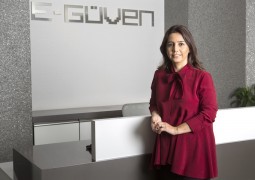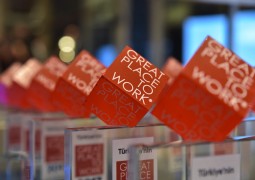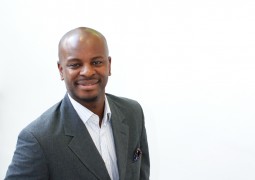What Future Will Bring to Us – Dele Atanda
by 0

Now, I have the second part of my conversation with Dele which is more personal. I asked about his future vision, his book, and an NGO.
To read part one please click here
– Can machines replace humans?
– People are talking about singularity and machines and getting concerns that everybody is scared of something like Terminator.
Our opinion in IBM is that we are focusing augmented intelligence about machines helping humans.
I think that the real singularity is about machine intelligence and biological intelligence converging. There are things that humans do well, and machines don’t, and there are things machines do much better than humans. The ultimate success story will be about both of those developing harmonies and converging to become some unified intelligence.
It’s possible to reach a dystopic kind of future, but whichever way evolves, and whether we are more human or more machine in the future ultimately there is going to be this convergence of the human and artificial intelligence context.
For me, I find the term artificial a bit misleading. Because really and truly, it’s a part of people’s hubris. We are so separate from each other by nature. But we may be just an expression of nature’s intelligence in that regards. We may be just accelerating this natural evolution of natural intelligence anyway. That’s the way I prefer to think about the evolution of machinery and intelligence in that context.
– Let’s talk about your book ‘The Digitterian Tsunami: Web 3.0 and the Rise of the NEO Citizen (The 21 Principles Driving The Evolution of The Internet) (Volume 1)‘
– I wrote it a few years ago at 2012. Digital is changing the world rapidly. You can’t predict future so easily.
– What about web 3.0?
– You know the general theme was that you couldn’t predict the future. No one knows what’s going to happen. Everything is changing so quickly, and the world is changing very rapidly.
I admit that there are many things about 2017 which you would never have guessed at 2015. But I think overall the significant trends that drive the changes are clear. If we understand those trends and embrace them, we’ll be much better equipped for the future.
Bill Gates quotes that ‘We always overestimate the change that will occur in the next two years and underestimate the change that will occur in the next ten.’
I think that we know what big trends are for long term. It’s possible to identify what macro trends are like social, economy, virtual, planetarism, the granularity of services, centricity. All of these things are just playing out and increasing more and more.
So, the purpose of the digitterian tsunami was the outline what these significant trends are. That could be a guideline to be able to understand how we start to plan for the future. It’s a blueprint for the framework of that. Most of them have proven themselves to be true.
– Is this the first book of the series?
– I’m working on the second. I know what the second one is about. I believe there going to be three books in the series. I don’t know what the third one is about which I find really exciting.
The second book is about enough and interesting space for me. It’s part of singularity, the convergence of biological intelligence and machine intelligence. The real central theme of the second one is post-industrialization. What it means, what is it about, what it means living in a post-industrial era? Because I think when you look at the world today, a lot of the structure in the world is a result of industrialization. But the interesting thing that when you look through history, industrialization is a weed anomaly in our overall history. That’s a big accelerator. It has done a lot regarding progress. But it also created a lot of damage in many ways. The way we sense, we look at phenomenal social media and things like this. They are the representatives of the world.
The technology is enabling a new form of organization. For me, one of these central tenants of industrialization is centralization. That’s really the big kind of achievement for the industrial era. It centralizes things like production, capital, and communication. As a result of this, things are like a nation-state emerged. But technology now is a new wave of decentralization like blockchain which I think is the fundamentalist internet itself. Now we can actually operate in very efficient, scalable manner but a very decentralized manner. So, I believe this is going to form the blueprint for a new operating model that would be as dramatic as industrialization in a post-industrial context.
That’s what the second volume is going to be about when I find the time to write it.
– We also know that you established an NGO. What’s the purpose of that?
– Yeah, the Internet Foundation – IF – .
That is about my passion around privacy and human rights. I started looking at personal data many years ago, and as I look more and more, I realized that this is a bigger and more major issue.
I ultimately came to the realization that this is a matter of human rights. As I explored further, I started to see that an interpretation of human rights was needed for the digital age. Internet Foundation is primarily set up to advocate for two things.
One is the universal declaration of digital rights as an extension of human rights in digital space.
Second is what we call it clean data charter which is a framework for how companies should use consumer data and irresponsibleness in a sustainable manner. We believe that this is ultimately a sustainability issue. Models of the personal data usage at the twentieth century and early twenty-first century are regarding that if you are not paying for these products, these models are not sustainable.
We are looking at the changes in the legislation of Europe now which GDPR – General Data Protection Regulation – for many regards. You can start to see that legislation is moving in this way.
The idea is that data is a property. It is not that hard to find this data. We have the right to have our property based on human rights. How we think about data has to be reflected and how we operate around this data. That is what for the NGO is.
– Would you like to add anything?
– We have a quite covered lot of ground. Haven’t we?
I think that the only thing I would like to add is that we are living in a very strange world at the moment.
Someone said that ‘We make this thing called reality every day which we commit ourselves to it.’
I think that reality is in flux in many regards. It’s crucial for the individuals to behave in a vision for the people who have aggressive and optimistic visions for the future to articulate. What I would encourage people to do for the dreams, the visionaries over there is to articulate those and bring them up. Because that’s the world is looking for now. Nothing is written in the stone anymore. I think the more of us that can start to define articulate, a new progressive future than the more real will become. That’s my final sort of comment. I suppose people will be investing to shape that progressive new alternative of the future such as dystopic which is a frightening and a scary future the world is familiar with.
– Could you tell us about three futurist names besides you for us to follow?
– Ray Kurzweil is obviously a legend in his right.
I am a big fan of science fiction writers which I think have shaped a lot for the future.
One really fascinating man at the moment is the author of the film Arrival. Ted Chang is an amazing writer.
Arthur C. Clark is another one of my favorites.
One of my favorite books of all time is Frank Herbert‘s Dune which I think he was a futurist of unprecedented vision in that regards.
– Let’s make it five.
Elon Musk. He is an innovator, entrepreneur and I think he is a future hacker as well. He is one these people creating, bringing a future here right now and making it indisputable. That future is coming.
So, Ray Kurzweil, Ted Chang, Arthur C. Clark, Frank Herbert, Elon Musk.
– Thank you very much.
– Totally fun.
Sinan Oymacı
Please feel free to watch below video interview in English with Turkish summary with Dele Atanda who is the Digital Innovation Officer at IBM’s Interactive Experience.





